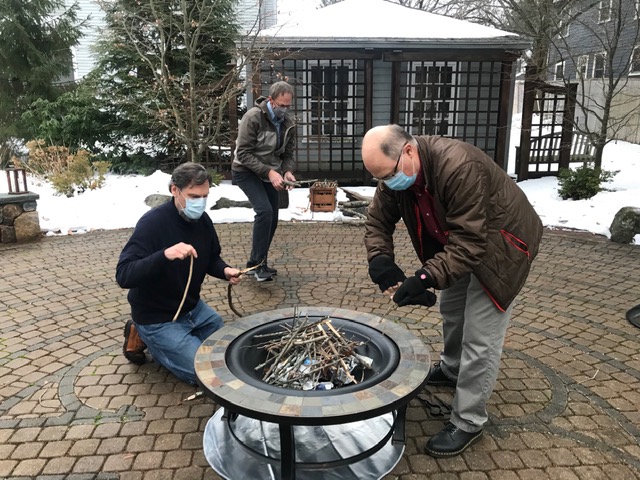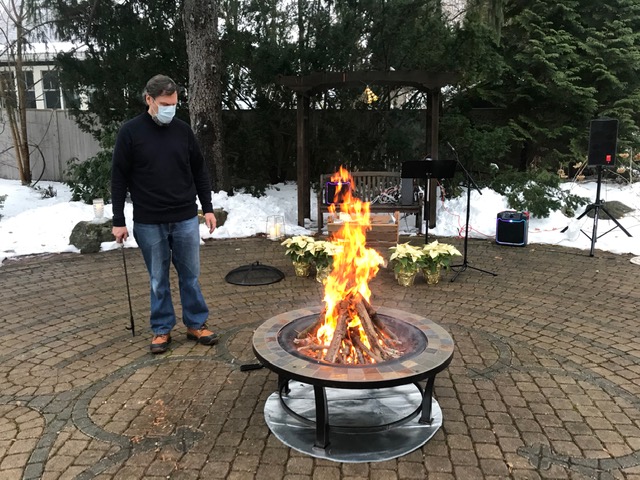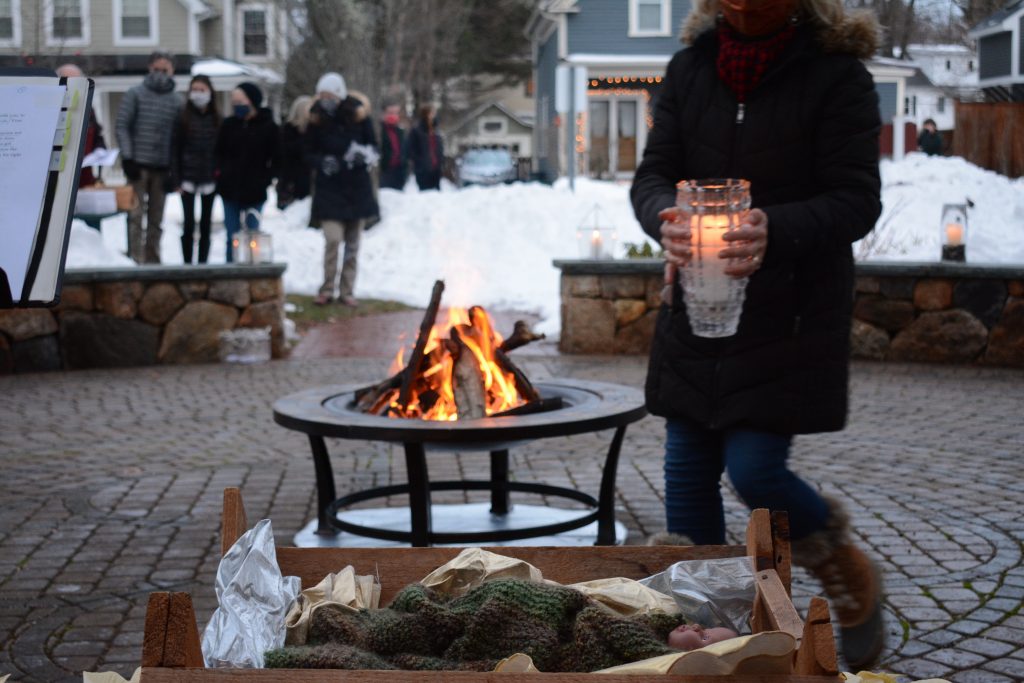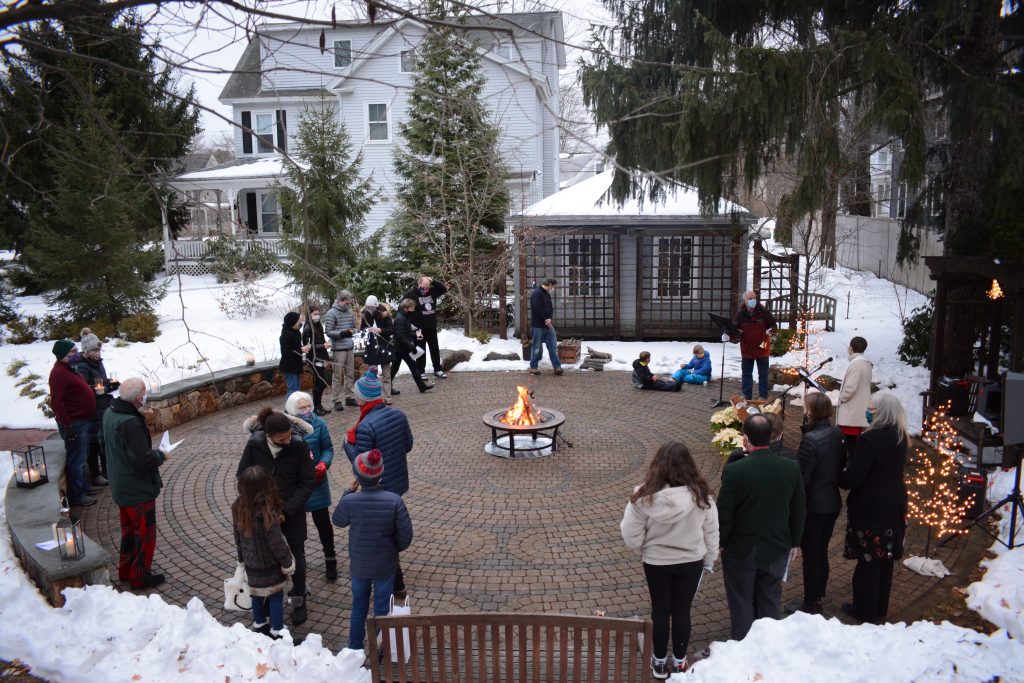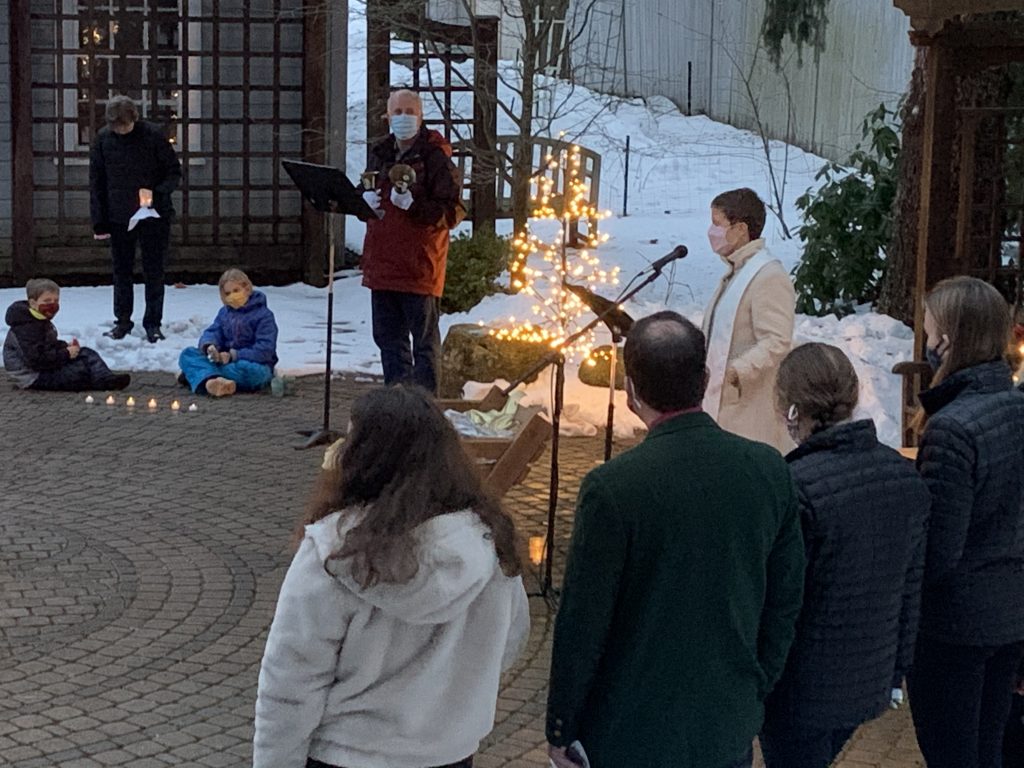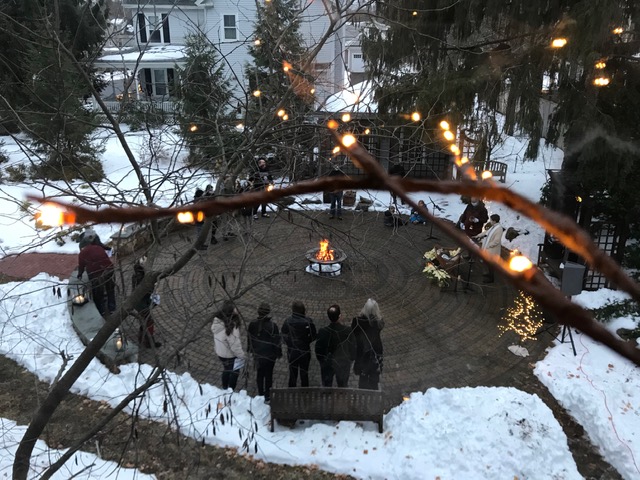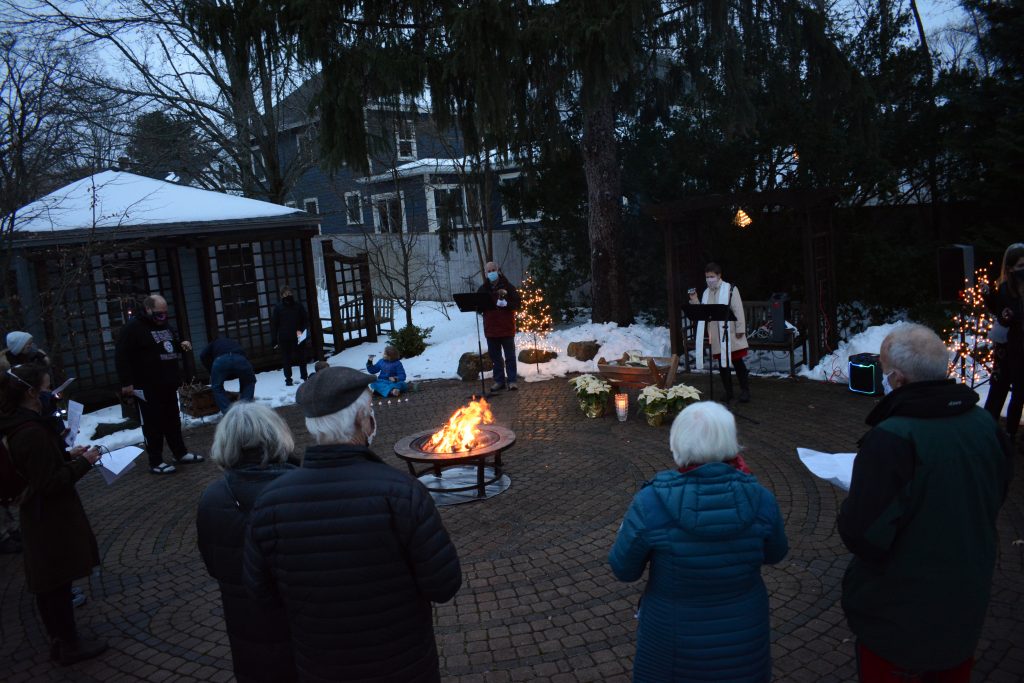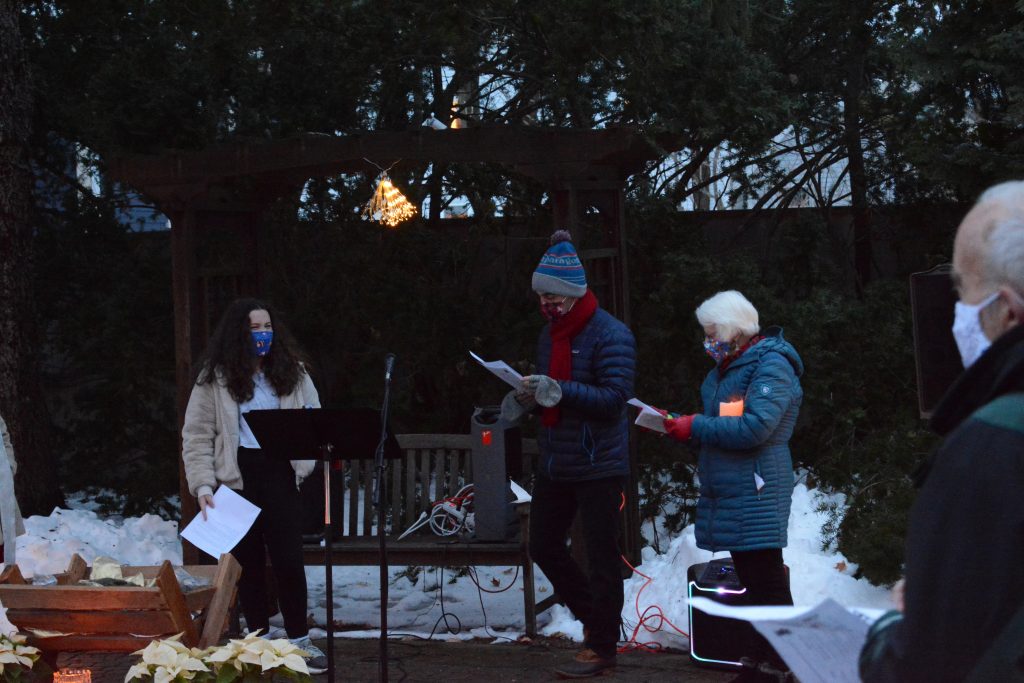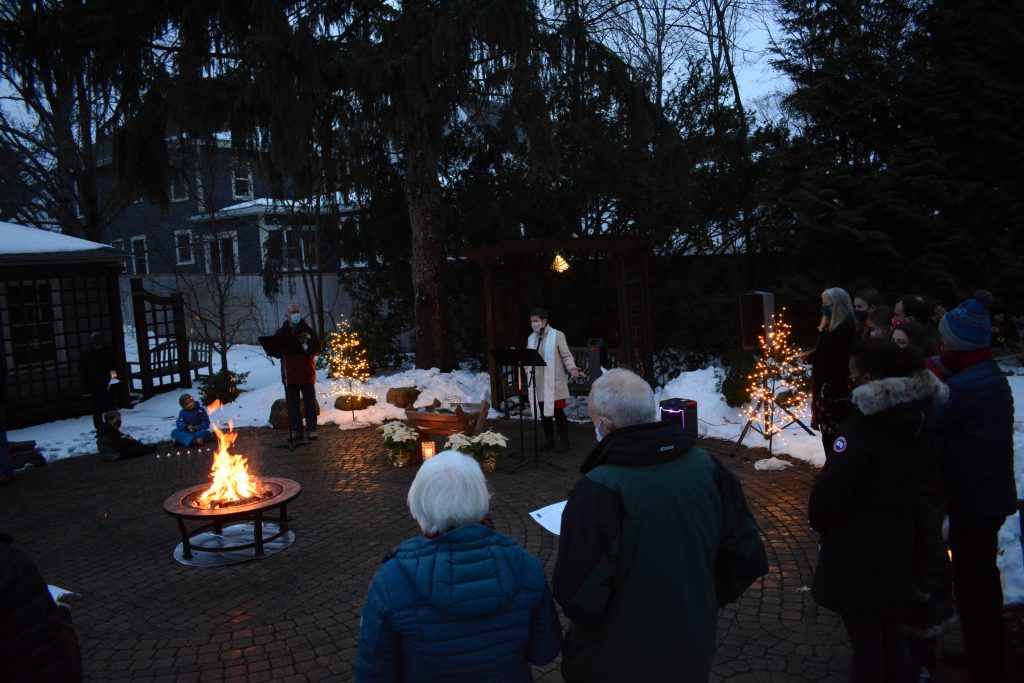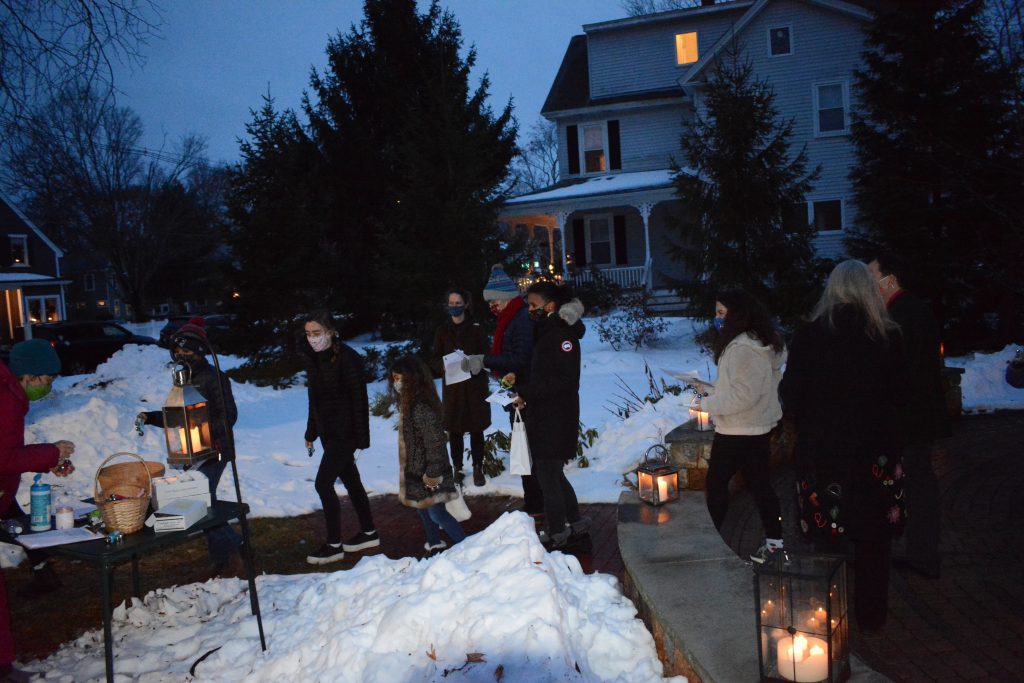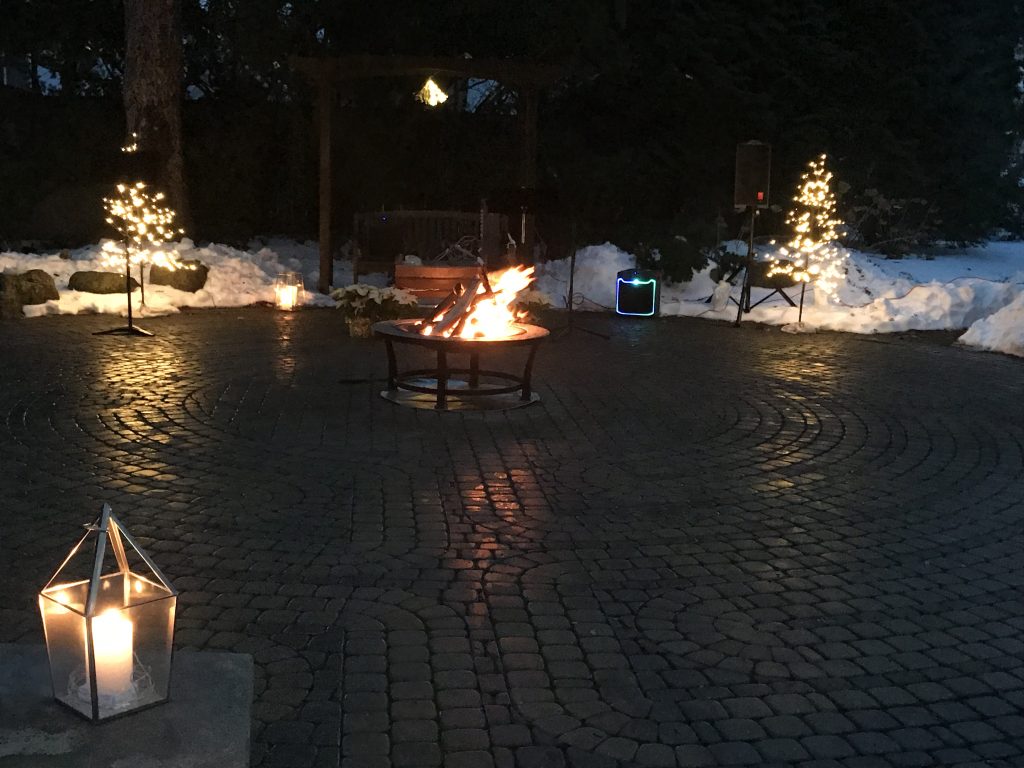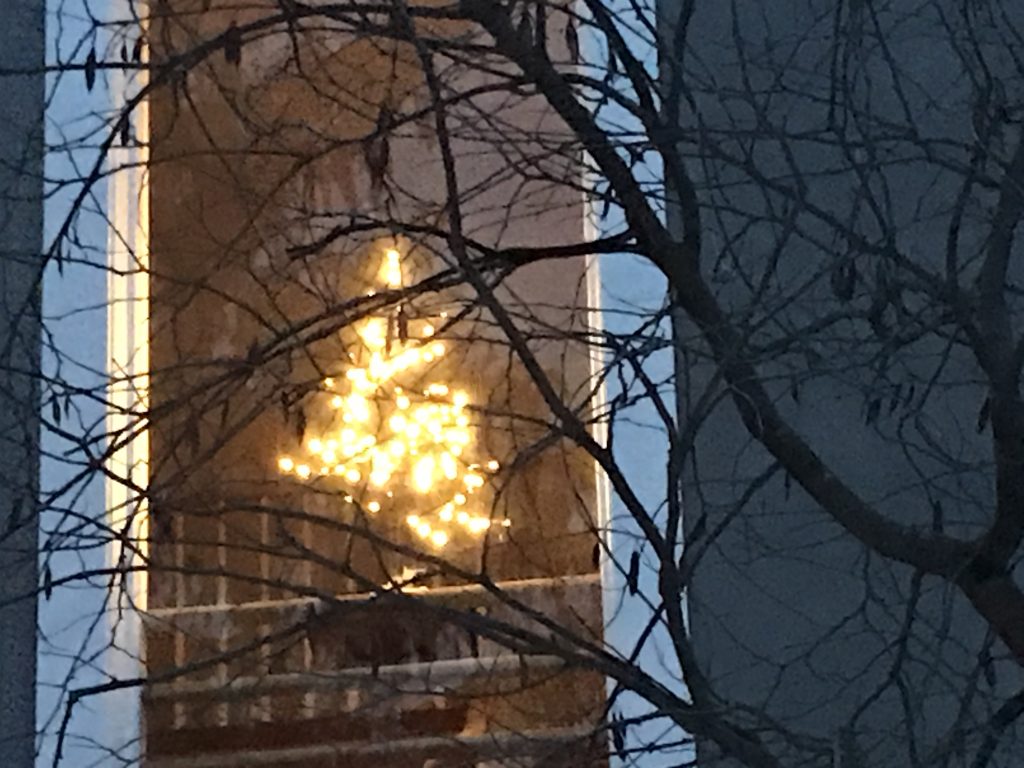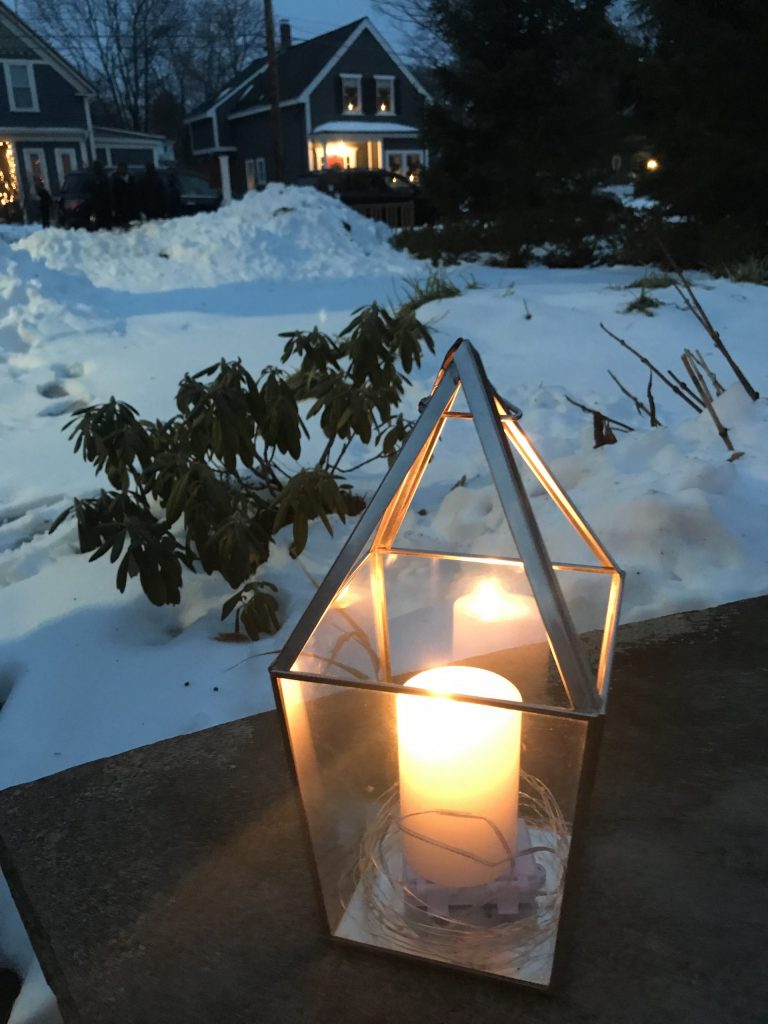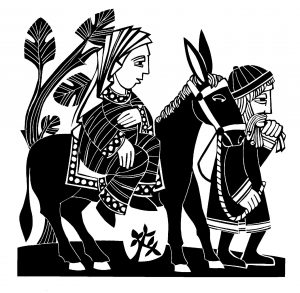Thanks to the efforts of so many for making this pageant possible!
Tagged with Christmas
Christmas Eve Prayers
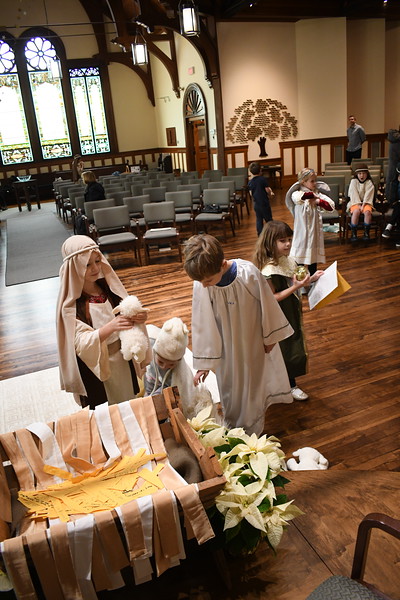
On Christmas Eve we recorded our hopes, prayers, and longings on strips of paper and placed them in the manger, to make a bed for the baby Jesus. Please join us in our prayers:
- For peace between all people: understanding, unity, acceptance, togetherness, love, inclusion, equity, bridging of political divisions, healing following colonization and western violence
- For the healing of our Planet: love for our earth, new advances in renewable energy, conservation, reduced use of materials and energy, honor and respect for ocean life, sustainability
- For the church: full inclusion of LGBTQI people in all churches
- For leaders: that they might have peace, respect, wisdom, humility, generosity
- For our loved ones: their healing, health, safety, comfort, freedom from pain, solace, joy, support, guidance
- For our own wellbeing: health, happiness, kindness towards others, appreciation of the present moment, forgiveness, peace, joy, new great memories, meeting new people, new adventures, new learning, purpose
- For all people, all of God’s children: connection, abundant food, all needs met, release from pain, unwavering love and support, God’s welcome, fulfillment of God’s call on their lives,
- For new scientific discoveries
- For a bright and beautiful star
Repeat the Sounding Joy
Luke 2:1-20
The story of the birth of Jesus in the Gospel of Luke is a story full of holy messengers and holy messages.
An angel visits a priest named Zechariah to announce the coming of a child named John, who will turn many people towards God. An angel visits a young woman named Mary to announce the coming of a child named Jesus, whose holiness and power will be greater than any who have come before. Angels visits shepherds, bringing good news of great joy for all people, announcing the birth of a longed for Messiah, a baby who bears God within.
These holy messages of our Christmas story began spreading over two thousand years ago. Once a year, we gather to heed them again.
We gather tonight to receive the holy messages of Christmas in scripture, and perhaps even more, in song. Hymns and Carols are such an important part of what it means to celebrate this feast. Perhaps the most famous Christmas Hymn is Joy to the World, this year celebrating its 300th anniversary.
Joy to the World was written by the prolific English hymn writer Isaac Watts. Watts draws on Psalm 98 and several other pieces of scripture to share his exuberant belief that through Jesus, God brings about righteousness and equity in the world. This is such good news, that he encourages all of creation to break into song. Let heaven and nature sing! Let fields and floods, rocks, hills and plains, repeat the sounding joy!
Set later to a tune that echoes Handel’s Messiah, this hymn returns each year to proclaim: Joy to the world! The Lord is come!
We gather tonight to receive holy messages in scripture and in song. What will we make of them? These messages are very familiar to some of us; but familiar or not, they are quite strange. How could the birth of one baby, or even two, change the world so very much? How could the presence and person of Jesus somehow liberate us from all that is evil? If these events so long ago were really so momentous, wouldn’t things be different today?
For, of course, though we are all cleaned up for the holiday, there are some here among us tonight who are bearing great loss or pain. There are so many with unmet needs around us. Every nation and culture and community on this earth struggles to live in justice and peace. Creation itself is groaning due to the destructive acts of humankind. Where is the righteousness and equity in our world today? Where is the joy? Where is our God?
We may long for a quick fix Christmas, for s sudden holy intervention, setting everything aright. But Christmas has never been about a quick fix. Contrary to what we often pretend, Christmas is not about “be cheerful, no matter what” or “pull up your bootstraps” or “just pretend that everything is fine,” either. Instead, on this holiday, on this night, we gather to ponder the mystery of how holiness can dwell even in humanity; how hope can coexist with oppression and pain; how good can slowly emerge even in the most difficult circumstances.
When those first holy messages of Christmas arrived, the human recipients didn’t jump for joy. Zechariah, Mary, and the Shepherds all reacted with uncertainty at first, if not terror. The invitation to holy hope in the midst of our everyday realities can be scary. It is only with time, with companionship, with prayer, that those the angels visit begin to trust in the holy messages they have received, and then share them with others.
Perhaps it is as if a great, beautiful bell was struck all those years ago, on that night when angels were thick in the air; when a baby was born to Mary by the Holy Spirit; when that baby was wrapped in cloths and placed in a manger. A great, beautiful bell was struck, to drive out fear, and to offer hope, and to make way for change. The vibrations of this bell hummed in the hearts of those around the manger in Bethlehem. The tremors were so great, the rumbling even reached people in far distant places.
The echo of that first bell is dim, now, but also pervasive, diversified. So many have received and shared its sound, again and again, over time and through space, that it shimmers around us now in wondrous harmonies. If we open our hearts to prepare Christ room, we may find that it begins to pulse with sounding joy; with the whisper that Love is real and present among us; with the murmur that a different way of life is possible.
We are here to receive holy messages tonight, and We, too, can be holy messengers; instruments in the great orchestra of God’s creation; part of the praise band; part of the bell choir. Tonight, may the clarion call of God’s wondrous love born into this everyday world reverberate in you, driving out fear and despair, making room for healing and hope. Perhaps, in time, we will each find a way to join in the chorus, to magnify the message, to swell the song that bursts into our broken world again tonight, proclaiming glory and peace. May it be so.
An Ordinary Miracle
A Christmas Eve meditation on Luke 2:1-20
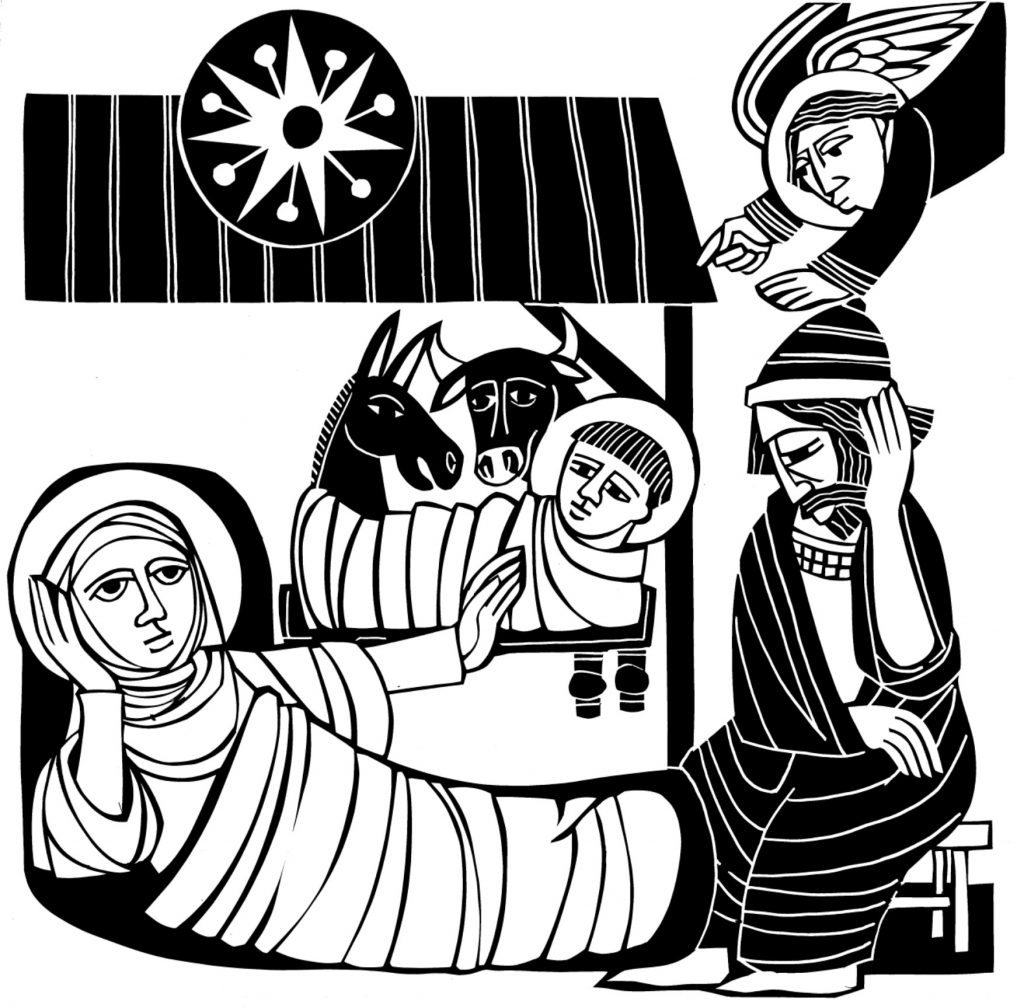
According to this passage of the gospel of Luke, the birth of Jesus begins in a very ordinary way. Everyone is just going about their business.
The Roman Emperor wants to collect taxes more efficiently, so he organizes a census. The people who live under the control of the Roman Empire don’t want to get in trouble, so they follow the census instructions. Everyone travels to the town of their birth to be counted, and, naturally, rooms for the night grow scarce. Meanwhile, a baby is born in the stable behind an overflowing Bethlehem Inn. Not so strange — Babies come when they’re ready. They arrive every day. So far in this story, there’s taxes, travel, and birth: common human stuff.
It’s only when the angels arrive that we are invited to notice that something amazing is happening. An angel of God comes before shepherds doing their work in the fields. The angel shines with the glory of God, and says: “Do not be afraid; for see – I am bringing you good news of great joy for all the people; to you is born this day in the city of David a Savior, who is the Messiah, the Lord!” Then a multitude of the heavenly host arrive, just in case someone has missed the point, shouting “Glory to God, and on earth, peace.”
We come here, tonight, in the midst of our own ordinary lives. Like the folks in the story, we have to contend with leaders who make choices about our nation. Like the folks in our story, we know what it is to pay taxes, and to travel. Our lives are full, we work and rest and play. We fall in love, receive diagnoses, struggle, fight, grieve, break things, get exhausted, make up, fix what can be mended, and try again. Our lives are full to bursting with ordinary and heartbreaking stuff. Babies are born here every day.
How often do we notice the wonder of it all? How often do we take a deep breath, and gaze at life, and notice its beauty?
We’ve been talking about Angels all season here. Angels, who bring messages. Angels, who bring comfort. Angels, who arrive unexpectedly. Angels, who guide us towards freedom. Angels do all these things and more. And above and beyond these things, the angels in our scriptures invite us to awe. See the good in this, they encourage us. Feel the God in this. Sense the amazing power of this moment, and give thanks. Cry “glory.”
It’s a little daunting, to be asked to notice the good, to notice the God, going on in and around us. The folks in the story tonight aren’t sure what to do.
The shepherds, at first, are terrified. Who is this dazzling being? From terror, they turn to curiosity. “Let us go now to Bethlehem and see this thing that has taken place.” In other words, let’s see if this whole thing is actually true. Only once they have visited Mary, and Joseph, and the child, and seen for themselves, do the Shepherds get around to glorifying and praising God.
Mary shows us yet another possible reaction to the angelic invitation. Instead of reacting in fear, or seeking proof, or giving thanks, Mary treasures the words of the angels, and ponders them in her heart.
No one said awe or
gratitude was easy. Still, the angels
invite us to try them out.
On this holy night, we remember a time when God’s presence on earth was magnified. God shone bright in a star up above. God beamed forth in the face of a newborn. Still, the miracle could have been missed. God does things in surprising ways. She chose a little one with brown skin, from a poor family, in a small nation, to show the world more about who she is.
Thank God for the angels. The angels called to those folks back then, busy or bored, lost in pain or pleasure. The angels called to them, and they call to us now. Do not be afraid, they tell us. Dare to take a breath. Dare to take notice. Right now, close by, in the humblest place, is a love that can change your life, and a reason to cry, “Glory!.”
God, you are good, from the beginning of the world. Our lives are a gift from you, and our home is your beautiful creation. Still, there is a lot of pain here, and plenty of ordinary everyday. It’s easy to miss out on the most important stuff in the midst of everything else. Help us to notice the holiness shining forth in our lives: if only for a moment. Urge us on, to ponder it more deeply, and to pour forth our praise. Amen.
Finding a Posada
Luke 2:1-20
The beautiful holy story we remember tonight takes place amidst bureaucratic red tape.
The Roman Empire needed money, and so it needed to collect taxes. But how can you collect taxes if you don’t know who you’re taxing? The first step is a registration: a census. And for some strange reason, in this story, everyone is counted not where they live, but in their place of origin, in the city from which their family’s male line comes from. It seems like a strange plan to me for organizing a census; but that’s the way our story goes.
Joseph’s people were, Luke tells us, from Bethlehem. And Mary and Joseph lived in Nazareth. So Mary and Joseph join the nameless crowds of people that were on the move that season. So many people, traveling by foot or by animal or by cart. So many people, improvising places to stay, and ways to get fed. So many people, standing in lines, and filling out forms. It must have been terribly disruptive and inconvenient and costly and even dangerous for these folks to travel. Still, it was less risky than disobeying the empire.
That journey from Nazareth to Bethlehem was not a good time to give birth. But babies don’t wait for bureaucracy. They don’t care about borders, either. They come when it is their time to come. And, as it happened, Jesus was ready to be born. So Mary and Joseph have to do the best they can, in a truly unfortunate situation. Mary births outdoors, perhaps, or in a stable – the text doesn’t say. And Mary lays the baby in a manger, in a trough made for animals to drink out of – because there is no place for her family in the inn.
It’s only one phrase in the story: “there was no place for them in the inn.” But it’s a phrase that helps shape our whole understanding of Christmas. And out of this phrase came the tradition of Las Posadas, which means the Inns, the shelters, the accommodations. For nine nights, in Mexico and in Spain and beyond, communities fill the streets. They follow behind people dressed as Mary and Joseph, and sometimes a real live donkey. They look for a place to stay. At first the Holy Family and their friends are turned away. No, there is no room, you are strangers, we couldn’t possibly help. But then, eventually, each night, the travelers are welcomed in; to a home full of light and food and music, or into a brightly decorated church. The travelers come in to kneel around a nativity, and to pray or to party or both. The last night of Las Posadas is tonight: Christmas Eve.
This tradition that we reenacted with children at our five o’clock service tells our holy story in a wonderful way. Las Posadas also invites us to consider: who is getting left out today? Who is barring the door? And how can we all work past the very human instinct to distrust a stranger, and welcome holy families, and holy children, into our midst?
Unfortunately, it is all too easy to think of people being left out today. We might remember the immigrants and refugees who seek safety and opportunity in our nation, or in Europe. Too many of these precious children of God are spending their holiday season in detention centers or in refugee camps; away from family; in want and in fear. Others are being left out for other reasons. They are not seeking a new nation, but face distrust and discrimination right where they are, because of differences of skin color, culture, religion, wealth, sexual orientation, gender expression, and more.
Some say that God sent us Jesus, our Emmanuel, our God-with-us, so that we could finally see the divinity that resides in humanity. It has always been there, of course – God created us, all of us, in God’s own image. But two thousand years ago, we seemed to need a reminder that God’s glory could coexist with the common stuff of human life. So God sent us Jesus. Jesus: in whom the presence of God is so blindingly clear, that it cannot be missed. God wanted to let us know: even in these flawed and humble creatures, in their great complexity and diversity: even in people like you and me, lives the breath of God. When you help the least of these, you are showing hospitality to God herself.
In our Christmas story, God is born as a human child in a world of tragedy and injustice and poverty and division. And his birth changes things. Now, Mary and Joseph still have no choice about taking their trip to be counted in Bethlehem. And they can’t change, either, the distrust or dismissal or exhaustion that leads all the innkeepers to turn away a mother in labor. Yet still, through the grace of God, Mary and Joseph find a welcome. Animals keep them company while they cradle their child. Angels are put to work bringing news of his arrival. Shepherds, dirty and rude, come rushing to witness the babe. There’s enough folks for a party, or a prayer service, and good news to celebrate: good news of great joy for all the people.
No matter what you witness when you look out into the world today, at Christmas we remember that humanity has been at least twice blessed: by God’s creation of human life, and by the incarnation of God as Jesus. If God made us, and has accompanied us from the beginning; if God came to be with us in flesh and blood; then perhaps we are, all of us, redeemable: capable of recognizing and following the divine within us. Capable of recognizing and honoring the divine within one another.
In this beautiful place that is marked by unjust laws and selfishness and cruelty and plenty of our own modern bureaucracy, God keeps gently inviting us into lives that are run by a different logic. Look, God says: see the holy child, filled with everlasting light. Listen to the solemn stillness, and the glorious songs. Observe the tender care of the new parents, the awe of the shepherds, the angels’ watch of wondering love.
If all this is true, then perhaps we may find ways to welcome the Marys and Josepsh that come knocking at our doors, heavy laden by life’s crushing load. If all this is true, then perhaps along our own weary roads, we may find rest in the Posada, the inn, of God’s own love. For God is waiting for every wanderer, for all of us – ready to provide some modest but truly warm accommodation, with shelter, and food, and light, and love, and prayer, and maybe even a party. Thanks be to God.
